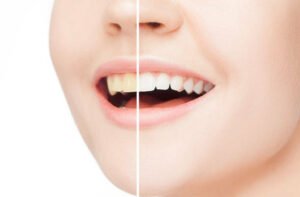In the bustling world of oral health, one essential but often unsung hero is the Dental Hygienist. These professionals are dedicated and play a crucial role in maintaining your teeth. They also contribute to your overall well-being. We will explore dental hygienists and their important responsibilities. They bring benefits and should be seen as key partners in oral health.
Understanding the Role of Dental Hygienists
Dental hygienists are well-trained professionals. They work closely with dentists. Their goal is to keep your smile bright and your oral health in good shape. Let’s break down their role into key responsibilities:
Oral Health Assessment
Before any dental work begins, dental hygienists conduct a thorough oral health assessment. This includes visually scanning your teeth, mouth, and gums for any visible issues. They don’t stop there. They also do oral cancer screenings. They catch potential problems early on.
Periodontal Examination
Dental hygienists perform a Basic Periodontal Examination (BPE) for thorough oral health assessment. They go deeper into your oral health. They assess the health of each tooth and gum in detail. This assessment identifies potential issues. It sets the foundation for a personalized treatment plan.
Dental Cleaning
One of the most recognizable aspects of a dental hygienist’s job is dental cleaning. They use special tools and techniques to remove tartar, stains, and plaque from your teeth. This not only prevents cavities and tooth loss but also leaves you with a dazzling smile.
X-rays for Early Detection
Dental X-rays are invaluable for early detection of dental issues. Hygienists take these X-rays to spot problems in their infancy, ensuring prompt treatment. They can assist in detecting cavities, gum disease, and oral infections. Additionally, they can help identify certain types of tumors.
Preventive Care
Dental hygienists are strong advocates for preventive care. They offer treatments like fluoride application and dental sealants. Fluoride strengthens your teeth, preventing decay and even reversing early signs of decay. Sealants, particularly useful for children, protect teeth from cavities in certain areas.
Patient Education
Consider dental hygienists as oral health educators. They teach patients of all ages about proper oral hygiene. Patients receive valuable knowledge on how to care for their teeth. They teach proper brushing and flossing techniques. They also emphasize the connection between diet and oral health. Overall, they are essential for maintaining a bright smile.
Maintenance of Dental Records
Behind the scenes, dental hygienists diligently maintain dental records. This includes documenting all care and treatment provided during your visits. The records act as a bridge between you and your dentist. They help coordinate your dental care.
Addressing Common Concerns
Now, let’s address some common concerns related to dental hygiene and dental hygienists:
Can a Dental Hygienist Perform Fillings?
Dental hygienists do not perform fillings. Filling procedures require dentists to drill out decay in teeth. This falls under the restoration of the tooth. However, hygienists can apply temporary dressings and provide numbing injections.
Dental Hygiene Costs
Investing in dental hygiene is an investment in your long-term health. A regular hygiene visit costs approximately £90. It is recommended to go twice a year. Neglecting dental hygiene can lead to more expensive issues down the line.
Direct Access to Hygienists
Direct access allows you to see a dental hygienist easily. You don’t need a prior dentist’s referral. The assessment quickly evaluates your oral health and provides guidance. It helps manage your dental costs easily.
Pain During Dental Cleaning
Pain during dental cleaning is often associated with gum disease or inflammation. Maintaining good oral health reduces discomfort during cleanings. This makes the experience much more pleasant.
Gum Disease Treatment
Gum disease is primarily caused by plaque buildup and requires professional treatment. Dental hygienists and dentists work together to remove plaque and address advanced cases. Remember, early intervention is key to preventing severe gum issues.
Can Gum Disease Lead to Serious Health Issues?
Gum disease doesn’t cause death, but it can worsen other diseases. For example, endocarditis, which can be fatal, is one of them. Taking care of your oral health is crucial for your overall well-being.
Conclusion
Dental hygienists are partners in achieving excellent oral health. They also help maintain oral health. Regular visits to these dedicated professionals can prevent pain. They can also prevent discomfort and even more serious health complications. Think of investing in dental hygiene as an investment in your long-term well-being. Don’t hesitate. Book an appointment with a dental hygienist today. Embark on a journey towards a healthier, brighter smile. Your oral health deserves nothing less.
Frequently Asked Questions (FAQs)
Can Dental Hygienists Detect Non-Dental Health Issues?
Hygienists may notice signs of systemic issues during oral exams. They refer patients to appropriate specialists, although it’s not their primary role.
Do Hygienists Use Advanced Technology?
Many hygienists use advanced technology for comprehensive dental assessments and treatment planning. This includes 3D dental scanners, intraoral cameras, and digital X-rays.
What’s the Role of Hygienists in Dental Implants?
Hygienists ensure oral health before and after the procedure for implant success. They reduce the risk of complications.
Can Hygienists Provide Guidance on Diet?
Hygienists advise on diet to promote oral health. They help patients make informed choices for healthier smiles.
Are Hygienists Involved in Pediatric Dentistry
Hygienists are important for children’s oral health. They provide preventive care, education, and early intervention. Their goal is to maintain healthy smiles.
For more information click here….







